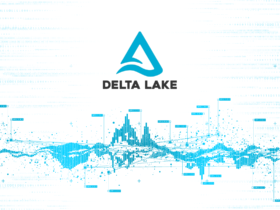Traditionally, humans perform tasks that require artificial intelligence using manual algorithms.
According to a Verdict AI survey conducted last year, over 70% of businesses said artificial intelligence would be very important for their industries.
AI has revolutionized how scientists develop new drugs, tackle disease, and much more in the pharma and biotech industries over the last five years.
How Is AI Currently Being Applied in the Pharmaceutical Industry?
Pharmaceuticals and consumer healthcare have relied heavily on AL and ML. As a result of COVID and the race to discover effective vaccines, AI and machine learning played a significant role during this pandemic.
Pharmaceuticals and consumer healthcare use these technologies at the highest level in the following sectors:
1. Disease Identification and Diagnosis
It can include anything from oncology to Covid to eye degeneration.
2. Digital Therapeutics / Personalized Treatment/Behavioral Modification
We can use this method for assisting and identifying individuals to provide early insight into the condition. The condition includes gum problems and accurately classifies skin conditions.
Clinical practitioners can use this as an additional tool to enhance their diagnostic accuracy by suggesting primary treatment options with over-the-counter medications.
3. Drug Discovery and Manufacturing:
The approach helps predict the success rate of compounds in the initial screening of drugs based on biological factors.
It is helpful in fast measurements of RNA and DNA. The use of precision medicine or next-generation sequencing can lead to drug discovery and the adoption of medication for each patient more quickly.
4. Predictive Forecasting
Disease prediction is a prime example of this topic. AI and ML technologies can also help predict and monitor epidemic outbreaks or seasonal illnesses.
Using a predictive forecast, we can plan our supply chain to ensure the appropriate quantity and timing of inventory is available.
5. Clinical Trials
We can find the appropriate candidates for a medical trial by combining their medical history, disease conditions, demographics, and ethnicity. It will enable us to identify the most impacted individuals and overlaying infection rates and demographics.
10 Pharma Companies Using Artificial Intelligence
Following are some Pharma Companies that used AI and ML in their recent invention for human health.
1. Novartis
Several Novartis’ new treatments depend on advances in AI technology, and the company is working to develop ways to provide fast access to these treatments.
Recently, Novartis announced that Kisqali offers patients with advanced HR+/HER2-breast cancer an additional year of survival.
2. PFIZER
The company develops and manufactures medicines and vaccines across several medical disciplines. It includes immunology, oncology, cardiology, endocrinology, and neurology.
To accelerate work in Precision Oncology, Pfizer announced in 2019 that it would partner with Concreto HealthAI.
A company recently announced that Covid-19 booster shots are safe for use by the Food and Drug Administration, and the CDC recommends them for everyone 12 and older.
3. JANSSEN PHARMACEUTICA
As part of the Johnson & Johnson family of companies, Janssen Pharmaceutica has its headquarters in Beerse, Belgium.
The company announced in 2019 that it would collaborate with a French startup to develop a drug design system powered by artificial intelligence. AI startup develops deep generative models based on neural networks in silico.
Recently, Janssen received an EC authorization for TECVAYLI (teclistamab) treatment of patients suffering from Multiple Myeloma, marking its first worldwide approval.
4. Boehringer Ingelheim
Boehringer Ingelheim has received approval in the US for its antibody therapy spesolimab, designed to treat the rare and life-threatening skin condition generalized pustular psoriasis (GPP).
5. Gilead
TROPiCS-02, developed by Gilead Sciences, Inc. (Nasdaq: GILD), has been reported as having a positive overall survival (OS) result.
Patients with HR+/HER2- metastatic breast cancer who have received at least two chemotherapies and endocrine therapy compared with Trodelvy (sacituzumab govitecan-hziy) versus comparator chemotherapy (physician’s choice therapy, TPC).
6. Owkin
In a recent announcement, AI biotech company Owkin announced the launch of two first-in-class, rapid, affordable solutions that rely on artificial intelligence.
In this case, it is a solution designed to improve breast cancer and colorectal cancer patient. The EU has approved the use of Owkin’s RlapsRisk BC and MSIntuit CRC for diagnostic purposes.
These algorithms use artificial intelligence to analyze digital pathology images, leading to more patients can access precision medicine earlier in their illness.
7. MIT
The Massachusetts Institute of Technology (MIT) has developed a model that can detect Parkinson’s disease (PD) only by reading a person’s breathing patterns. The model got developed in collaboration with the University of Rochester, Mayo Clinic, and Massachusetts General Hospital.
The tool functions together with nocturnal breathing so that the neural network can assess whether someone has Parkinson’s disease using a series of connected algorithms resembling the human brain.
8. Bot Image
FDA clearance has been given for a Nebraska-based company that develops AI-driven software to detect prostate cancer in MRI scans.
Thousands of digital images, radiologists’ interpretations, and biopsy results got used for training Bot Image’s ProstatID program.
This software automatically detects and measures the prostate gland volume and highlights suspicious lesions that may harbor cancer cells.
9. Stanford University
Stanford University researchers have developed an artificial intelligence program capable to streamlines heart ultrasound exams.
In this study, trained cardiologists fail to distinguish whether initial assessments are computer-generated. As usual, Cedars-Sinai Medical Center clinicians performed echocardiograms on patients in a novel blinded, and randomized controlled trial.
Sonographers recorded the first measurements of the left ventricular ejection fraction of the heart, or how much blood the heart pumps out to the rest of the body.
10. Ellipsis
In recent years, artificial intelligence-powered smart assistants have gained popularity, raising concerns that they can listen in on private conversations.
But, more and more tech developers are building voice-analyzing AI tools, which could make health management easier.
Among those companies is Ellipsis Health, a San Francisco-based startup developing a system that analyzes voice samples using deep learning AI.
To determine the severity of stress, anxiety, and depression, the AI model listens to semantics with acoustic patterns; the way someone speaks determines the severity.
This technology remains relevant as it got designed to collect short voice samples during online, in-person, or phone conversations. With the help of healthcare providers or case managers, AI will be able to identify users’ speech patterns throughout the day during their daily activities.
The Future Of AI In The Pharma Industry
The pharmaceutical industry has been deploying AI capabilities rapidly in recent years. A recent study found that almost half of global healthcare companies plan to implement AI strategies and broaden their use of the technology by the year 2025.
There will be a greater focus on discovering new treatments for chronic and oncology diseases in the pharmaceutical and drug development industries.
Therefore, companies are increasingly using artificial intelligence to enhance patient health and manage chronic diseases.
Chronic kidney disease, diabetes, cancer, and idiopathic pulmonary fibrosis will be among the chronic diseases that AI can tackle in the future.
As a result of AI, pharmaceuticals can also improve their candidate selection processes during future clinical trials.
Conclusion
Drug discovery and manufacturing will continue to be aided by AI and machine learning.
Using artificial intelligence in pharmaceuticals and manufacturing will become more common over time as they become more accessible.
Over the next few decades, AI will play an increasingly important role, and we will live in an AI-enabled future.
RandomTrees is revolutionizing the pharmaceutical industry by leveraging advanced AI techniques, such as drug discovery algorithms and predictive modeling, to accelerate innovation, streamline research processes, and enhance decision-making for companies at the forefront of pharmaceutical advancements.








